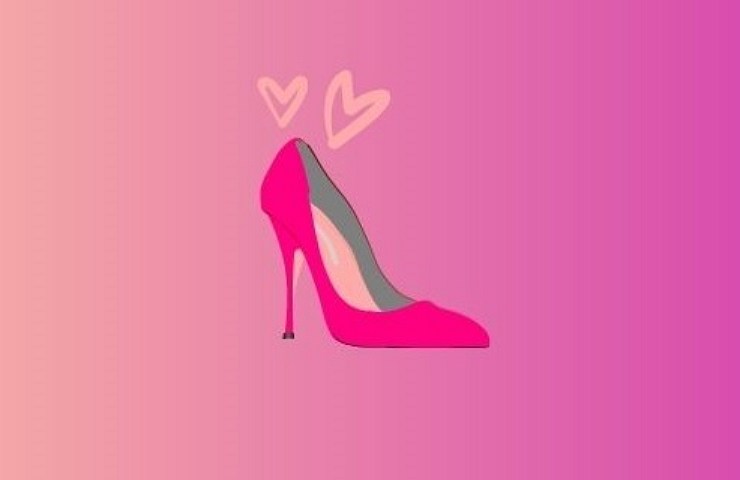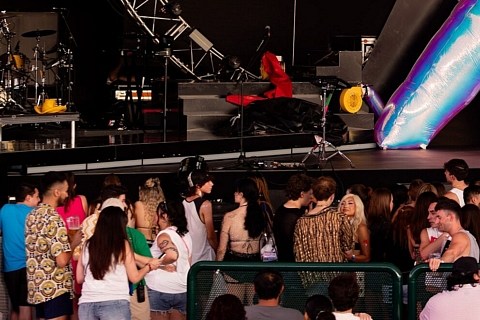After turning the world pink, critics have a lot to say about “Barbie” and its portrayal of feminism.
As groups of women from all walks of life dressed in their best pink outfits for the movie, you can’t deny that Greta Gerwig’s “Barbie” was able to unite women’s worst enemies together; women themselves.
As Ariana Greenblatt’s Sasha said, “Women hate women. And men hate women. It’s the only thing we all agree on.”
“Barbie” was able to touch on a plethora of women’s issues briefly. But, you can’t expect the movie to end the patriarchy in just under two hours. However, for the things Gerwig did touch on, it did well.
Going further, there will be spoilers for the film, so come back here when you have seen it.
Unpopular take, but just as “Barbie” was meant for women, it was also meant for men.
I found myself getting frustrated that a majority of the movie was about Ken and his quest to bring the patriarchy back to Barbie Land. While Barbie was discovering the ways in which the real world unfairly treats women, Ken was basking in the glow of men’s power.
Yet, I didn’t let the frustration sit for too long. Gerwig never evokes such emotion without a reason, and after a few cups of coffee, I realize that the scene wasn’t actually meant for me. It was meant for the boyfriends, fathers, brothers, uncles and men dragged by their loved ones to watch it with them.
Men need to realize the harm of the patriarchy does not just apply to women but to themselves as well. Throughout the movie, Ken had no identity besides his love for Barbie, which led to him running after the first thing that made him feel important; the patriarchy.
This unhealthy attachment led him to overthrow Barbie Land, steal Barbie’s dreamhouse and brainwash Barbies to become second-class citizens. Toward the end of the movie, viewers find out that Ken never truly wanted that role. He just really liked horses.
Despite that, his actions were clearly performative. It represented how no one questions men’s actions, just the need to perform according to already established social standards. For Ken, he wanted to explore things outside of just “Beach” and “Barbie’s boyfriend.” Unintentional or not, he wanted to escape the box that many female leads fall into when it comes to movies; being the romantic love interest with no ambitions.
I really hated Ken for the things he represented: chubby-cheeked brothers turning into foul-mouthed monsters. Fathers carrying their daughters on their shoulders only to let them fall unannounced. Boyfriends kissing cheeks lovingly only to mansplain a second later. For many women, we were let down by the men in our lives. Barbie was let down, too.
“Barbie” also touched on how women play a role in the patriarchy. From all the Barbies rejecting the discontinued Barbies to Sasha bashing Margot Robbie’s Barbie for sexualizing women and creating unrealistic beauty standards, patriarchy seems to worsen due to women.
So if men in power harm women, and women continue to hate themselves, where is the end of the tunnel?
America Ferrera makes a memorable impact in the movie in her monologue about how contradictory it is to exist as a woman in society. Her monologue starts with the struggle of achieving beauty standards by saying, “You have to be thin, but not too thin. And you can never say you want to be thin. You have to say you want to be healthy, but also you have to be thin.”
Women battle with themselves, other women and men to achieve any form of acceptance in society. This is true for Robbie’s Barbie. Despite being the perfect Stereotypical Barbie, she was hurt by the first male construction workers she met and Sasha who called her out for enforcing harmful stereotypes of women.
With that in mind, I can’t say there is an answer to the end of the patriarchy. A franchise like “Barbie” won’t be able to give an answer. All it can do is provide an outlet, create conversations and let women do their own introspective thinking on patriarchy, womanhood and the men in their lives.
I love Barbie but I used to hate her. Growing up, I hated everything she stood for from the color pink, her unrealistic body proportions and all of the “girly” things she did. I was like Sasha, in a way. In hindsight, I only hated her because I was looking at her from the eyes of my male peers. I refused to be seen in the same negative light as her.
Now, I’m reclaiming femininity for what it is. As groups of women dress in their best pink outfits to attend the movie, I am happy to be a part of that crowd.





Recent Comments